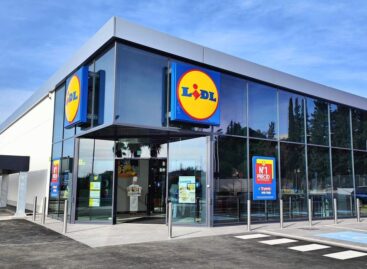What is the value of loyalty? Loyalty programmes in Hungary in 2023
According to the Loyalty 2023 study by CPS Household Panel, conducted last summer, for Hungarian shoppers the main benefit of participating in loyalty programmes is saving money.
This article is available for reading in Trade magazin 2024/2-3
Fun and enjoyment, should be easy and offer a bargain
Most loyalty programmes try to achieve their goal of making sure customers return regularly by increasing their sense of being appreciated. With little success, it seems. Just over a third of households feel valued by a business/service provider through loyalty programmes. However, for many, the lack of appreciation is offset by the reassurance of saving money: for 60% of households it is the savings that make them feel good about participating in loyalty schemes. A good loyalty programme is simple, user-friendly and uncomplicated.
Commitment or an interest-based relationship?
The vast majority of shoppers don’t have the patience to wait for large gifts and discounts, 70% like smaller rewards that are quicker to earn. A good programme will provide a sense of reward with every purchase. In addition to rewards, luck and playfulness are important to many people. Participation in loyalty schemes is now quite common: 98% of households use at least one scheme. However, the increase in interest in loyalty schemes doesn’t mean loyalty. Currently the average household juggles at least 5 loyalty programmes at the same time, while visiting 6 shops. 85% of shoppers have a loyalty programme that they use every time they shop, and 60% have more than one.
The price of loyalty
As most things in life, customer loyalty isn’t free, with households expecting a visible, tangible financial benefit: on average at least 7-8% lower prices in return for their loyalty.
Retailers also benefit from loyalty schemes, because Hungarian shoppers spend demonstrably more where they have a loyalty card than where they aren’t a member of a scheme. One in two purchases is made with loyalty, and two thirds of all FMCG spending is also realised within a loyalty scheme. Typically shoppers use loyalty programmes when buying a lot: it is really worth it when purchasing products in 4-11 categories or more, as 70-80% of households consider it important to collect points and/or redeem them as a discount at the checkout. Tesco Clubcard, Lidl Plus and Rossmann+ are the top 3 loyalty programmes in Hungary. Although Tesco is the most successful in encouraging people to use its loyalty scheme, Lidl wins when shoppers are asked which scheme they like the best – 23% say Lidl Plus is their favourite. Lidl customers are also the most satisfied loyalty scheme users, followed by Rossmann+ users and Clubcard users.
Is loyalty for Dogs? – Customer loyalty segmentation
Five well-defined customer loyalty segments can be identified. Butterfly: the most enthusiastic loyalty programme user, who wants to shine in every respect and feels truly valued by loyalty programmes. Dog: the most loyal companion, even if they use fewer programmes, they do so more persistently and consistently. Fox: the biggest profit hunter, who uses a lot of schemes but only occasionally, when it is really worth it. Turtle: they keep up with the trends, albeit rather slowly, and although they find loyalty programmes complicated, they are members of one or two. //
Related news
Lidl is the main sponsor of Veganuár™ 2026: the year starts with new vegan products and discounts
🎧 Hallgasd a cikket: Lejátszás Szünet Folytatás Leállítás Nyelv: Auto…
Read more >The icon returns: the joint sneaker between Lidl and Tisza Cipő is here again
🎧 Hallgasd a cikket: Lejátszás Szünet Folytatás Leállítás Nyelv: Auto…
Read more >Related news
(HU) A nap mondása
🎧 Hallgasd a cikket: Lejátszás Szünet Folytatás Leállítás Nyelv: Auto…
Read more >








